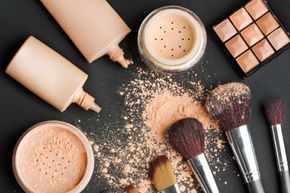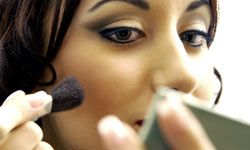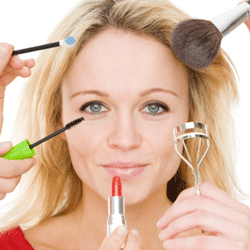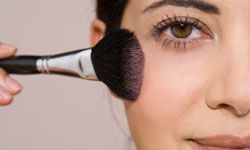Let's face it. The idea of applying makeup can be scary. When it's done right, makeup can make a woman look pulled together (even if she's wearing cutoffs and a ratty tee), rested and ready for any challenge. When inexpertly applied, it can make the same hapless female look like she's trying way too hard -- and missing the mark by a mile. That's one reason lots of ladies pass on makeup products, and especially on foundation products.
Actually, today's foundation formulations are easy to use and offer some solid benefits. They've come a long way in the last couple of decades. Using old style foundation felt a little like applying a coat of paint to your face. Sure, it might have looked OK for evening wear, or if you stayed in the shade at the company picnic. But let people, or one special person, get close, and that smooth, even illusion became a gooey, pasty reality.
Advertisement
The light, creamy powder and liquid foundations on the market today do a better job of staying put and looking natural. They provide visible coverage with a subtle artistry that works hard to stay invisible. What you see is your complexion without the flaws -- the way it should be, or would have been if you'd spent your life pampering yourself like a diva instead of working and raising a family. They also help make your face a better canvas for other makeup products like lip color, blush and eye makeup. Many also use special mineral ingredients that produce a sheer, luminous sheen while offering good camouflage for blemishes and fine lines.
Foundation isn't all that hard to choose or use, either. If you've had a bad experience in the past, you probably don't believe us, but we have a quick primer that will help change your mind. Let's explore the pretty puzzle of choosing the right foundation, starting with the age old dilemma: powder or liquid.



